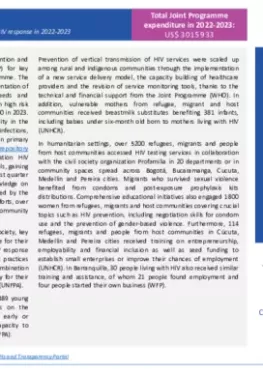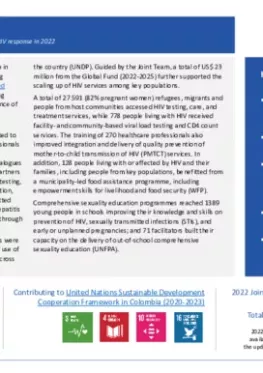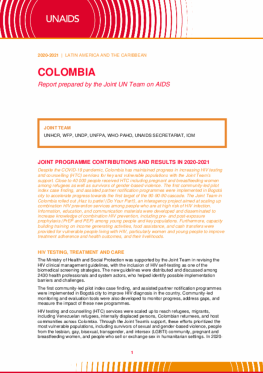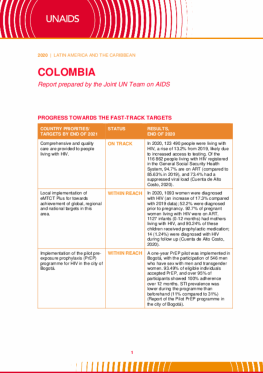|
Colombia
In 2022-2023, Colombia expanded combination HIV prevention and testing services, including pre-exposure prophylaxis (PrEP) for key populations with substantial support from the Joint Programme. The latest national combination prevention strategy and implementation of the QuanPrEP tool—which helps to estimate the needs and corresponding cost of PrEP—enabled over 1600 people with high risk of HIV infection to access PrEP services in 2022 and over 6600 in 2023. More than 1900 healthcare workers increased their capacity in the prevention and management of HIV, sexually transmitted infections, HIV and tuberculosis co-infections, and hepatitis B and C in primary healthcare services (WHO). Besides, a newly launched repository of strategic information online repository scaled up access to combination HIV prevention guidelines, policies and other educational materials, gaining more than 4000 new users and 26 000 interactions in the last quarter of 2023 (UNDP). More than 940 people also gained knowledge on combination HIV prevention through an online course hosted by the Joint Programme (UNFPA). To further reinforce prevention efforts, over 2 million male condoms were procured and distributed to community spaces via 27 territorial governments (UNHCR).
As part of the Soy Clave project, representatives of civil society, key populations and communities were empowered to advocate for their rights, mobilize resources and actively participate in the HIV response through social contracting (WHO, UNAIDS Secretariat). Best practices and success stories from six effective community-led combination prevention initiatives were documented to support advocacy for their sustainability and integration into the national health system (UNFPA).





